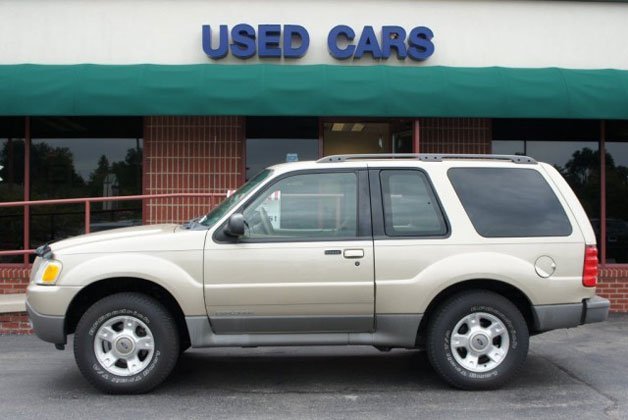Tips to Used-Car Drivers Who Will Ride it Till the Wheels Fall Off

Yes, there are plenty of lemons out there. But increasingly, people don’t have to argue about new vs. used. They are keeping their cars for many years. My husband and I had a 1996 Toyota Camry that we bought used and have since passed on to a niece. Today the car, which she still drives, has more than 200,000 miles.
So, being the penny pincher that I am, I was pleased to see a survey showing that the primary vehicle of 60 percent of respondents had more than 100,000 miles. Two in three survey participants said they planned on driving their cars for more than 150,000 miles or “until it dies.”
The survey also found that, overwhelmingly, people believe 10 or more years is a fitting life span for owning a vehicle. And most say that even if the economy were better, it would not change their propensity to keep their vehicle longer.
“Our data has been showing this trend for the past three years, but what is most compelling is that longer ownership has become an embedded habit for car owners, regardless of what the economy does,” said Brian Hafer, vice president of marketing for AutoMD.com. “This significant lengthening of the ownership cycle looks like it is here to stay.”
When asked how this new, longer vehicle life cycle would affect the choice of their next car, 52 percent said they would look at practicality rather than style because they wanted the vehicle to last. Helping the trend are better-made vehicles and online help for owners with repair issues.
It’s a good thing people are holding onto their cars, because they won’t get a big price break on late-model used vehicles. The price gap between new and used vehicles in many segments has narrowed significantly, said Alec Gutierrez, senior market analyst of automotive insights for Kelley Blue Book. In recent commentary on KBB’s Web site, Gutierrez said new vehicles on average are selling for only 11.5 percent more than a comparable one-year-old used car. Used subcompact and compact cars offer consumers an average savings of only between 5 and 7 percent.
“While traditionally shoppers would save thousands of dollars by purchasing a slightly used vehicle rather than new, this is no longer the case, as used-car values remain near their all-time peak,” Gutierrez wrote.
Here’s the thing. If you’d like to hang onto your car for a decade or more, you’ve got to take care of it. That means building into your budget a monthly allowance for car maintenance. Notice I didn’t say repairs. I mean put money away to get regular checkups so that a mechanic can identify issues early before you’re on the side of the road with a steaming engine.
Set aside the money in a “life happens” fund (an account separate from your emergency fund in which money is regularly deposited and withdrawn to cover various expenses) so that when the manufacturer’s recommended checkups come around, you’ll have the cash to pay for them.
Don’t ignore the “check engine light.” Here’s something I learned from AutoMD.com: Ignoring that light could affect your mileage. Given the rising price of gas, that should get your attention. Your miles per gallon measure could be reduced by as much as 30 percent.
One of the most expensive repair mistakes is neglecting preventive maintenance and minor repairs, AutoMD.com says. That rattle you hear is telling you something. When was the last time you changed your engine oil and filter? Squeaky brakes? Get them looked at before you hear a metal-on-metal sound.
Yes, I know. You ignore problems or maintenance because you’re too busy or too broke. One-quarter of drivers admitted to neglecting repairs and maintenance on their vehicles mostly because of their economic situation, according to a survey by AAA. Twenty percent of survey participants said they would have to use a credit card to pay for car repairs.
Preventive maintenance isn’t optional, especially if you rely on your car to get to work. Do what you can to save up and regularly service your vehicle so you can avoid or at least minimize major repair bills that will make you cry or, worse, make you believe it’s cheaper to just give up and buy a new or used car that you can’t afford.


